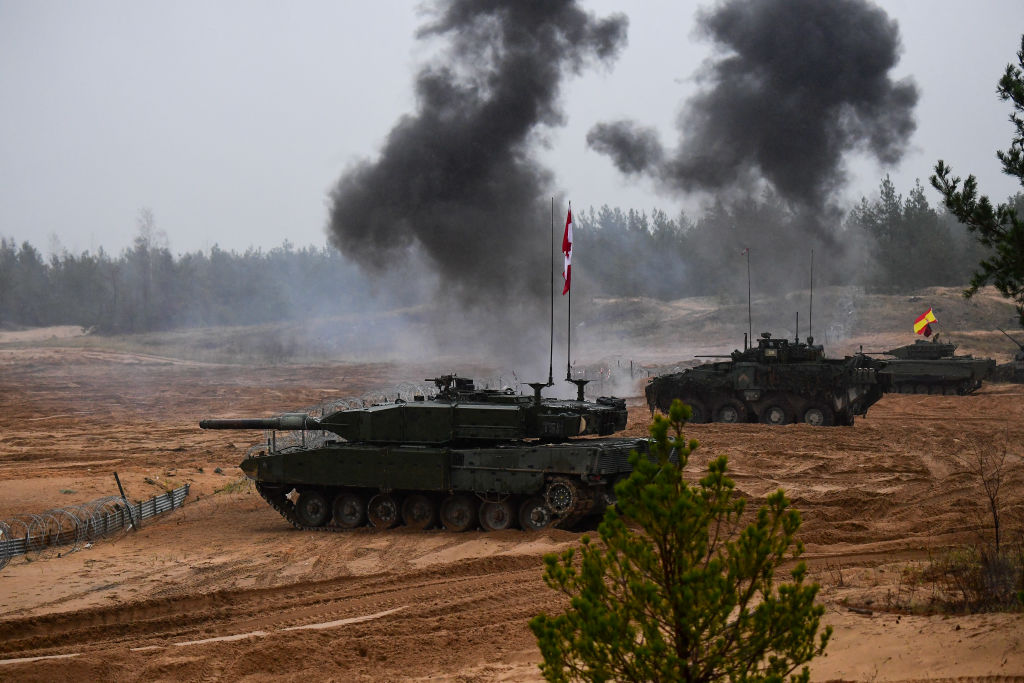Canada’s prime minister and defense minister traveled to Latvia in August 2025 to reaffirm their country’s commitment to leading a NATO combat brigade in the Baltic nation for at least another three years. Prime Minister Mark Carney announced the extension of Operation Reassurance, which began after Russia’s invasion of Ukraine’s Crimea region in 2014. Within months, the brigade, part of NATO’s Forward Land Forces, will be at full strength, he said, with 2,200 Canadian Armed Forces (CAF) members forming the backbone of a 3,000-Soldier unit.
“To secure lasting peace in Ukraine and Europe, we must deter and fortify. For over a decade, Canadian troops have played an indispensable role in deterring Russian aggression on NATO’s Eastern Flank and fortifying our shared defence. Canadians can be proud that our troops will continue to lead Operation Reassurance in this critical mission — for greater security, stability, and prosperity in Europe and around the world,” Carney said, according to an August 25 news release from the Canadian Department of National Defence.
Carney, accompanied on the trip by Defence Minister David J. McGuinty, met with Latvian Prime Minister Evika Siliņa. They discussed the importance of NATO, ending Russia’s war in Ukraine, and ending that conflict with “a just and lasting peace for Ukraine,” according to the release. McGuinty said the CAF’s role in Latvia is a source of national pride. “Through Operation Reassurance, Canada’s Armed Forces members are on the front lines, working alongside our NATO allies to strengthen defence on Europe’s Eastern Flank. Their dedication and professionalism help deter threats, protect the region, and uphold the democratic values that sustain peace and stability at home and abroad. Canada is proud to stand with its allies and contribute to this vital mission,” he said.
Operation Reassurance includes troops from 14 NATO nations. Latvia is seen by many observers as a potential site of Russian military ambition as it contains a large Russian-speaking minority and was part of the Soviet Union until 1991. Also, the Baltic nations, including Latvia, lie near the Suwalki Gap, which NATO planners believe attracts Moscow because it would allow Russia to establish a land route to its enclave of Kaliningrad Oblast, which contains important military assets. The gap, a sparsely populated area on the border of Lithuania and Poland, is the shortest path between Belarus, a Russian satellite state, and Kaliningrad.
Canada’s leadership of the multinational brigade is the nation’s largest overseas commitment. By 2026, Canada will spend 2% of its gross domestic product on defense, meeting NATO’s former threshold for member states’ defense requirements. The new standard — 5% spent on defense and related infrastructure, prompted by Russia’s increasing aggression — will be reached by 2032, the Canadian government announced in mid-2025.
Marcus Kolga, a senior fellow at the Macdonald-Laurier Institute, a Canadian think tank, told the Canadian Broadcasting Corp. that Operation Reassurance is one of the most important international missions that Canada has engaged in since World War II. “It demonstrates that Canada is active, and it won’t be pushed around by Vladimir Putin,” he said.

